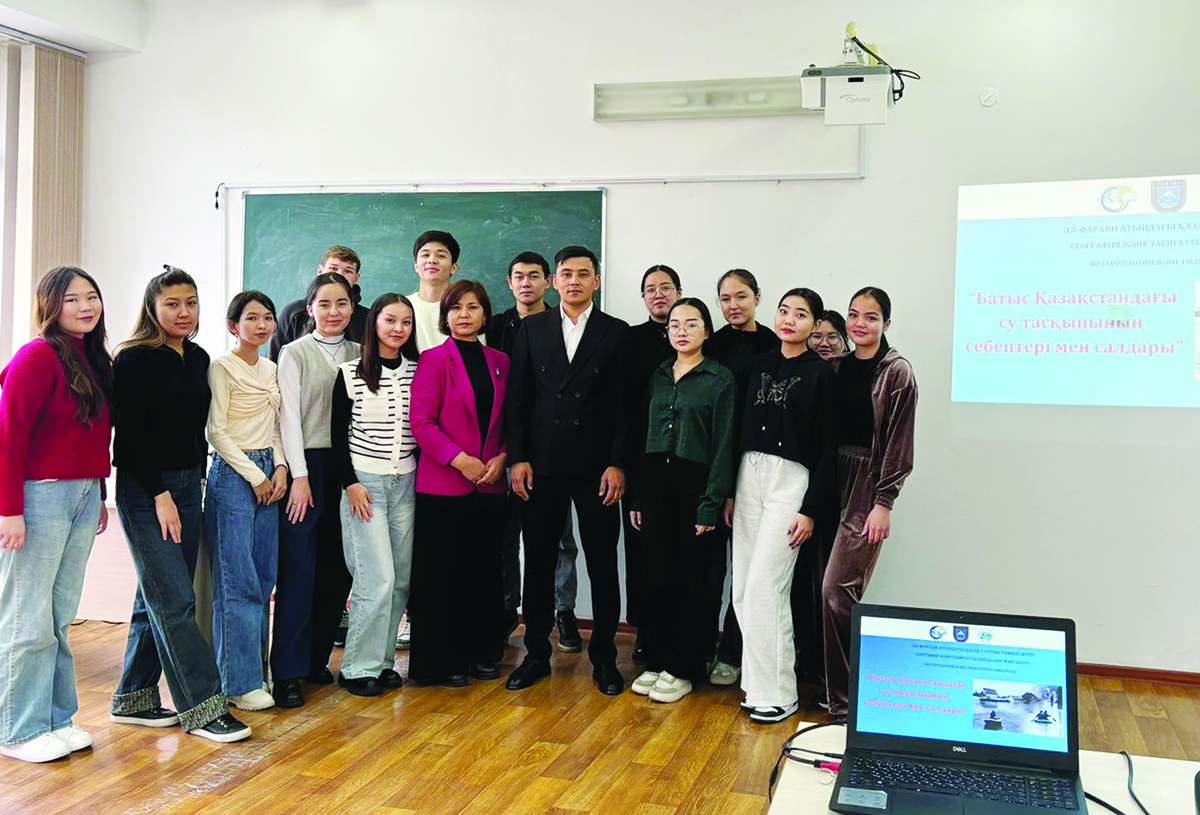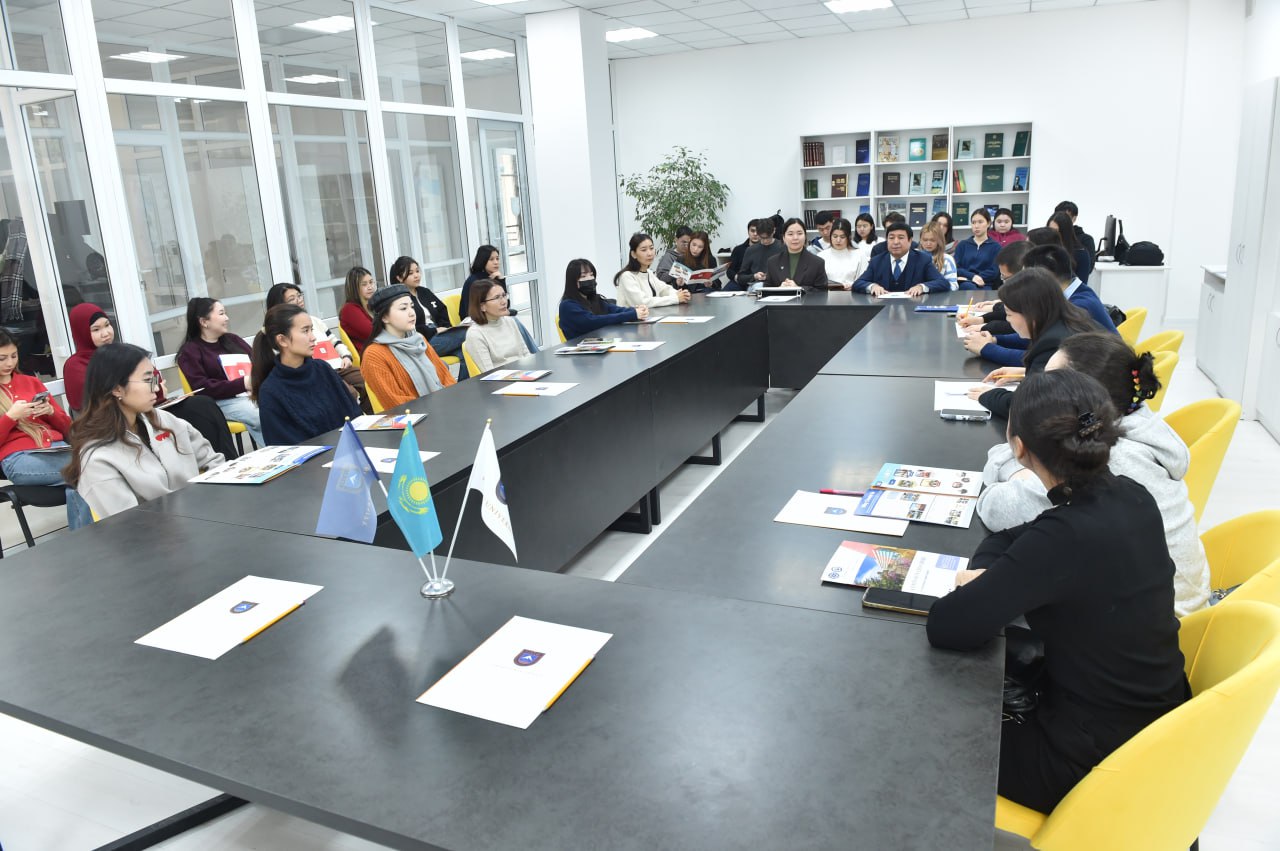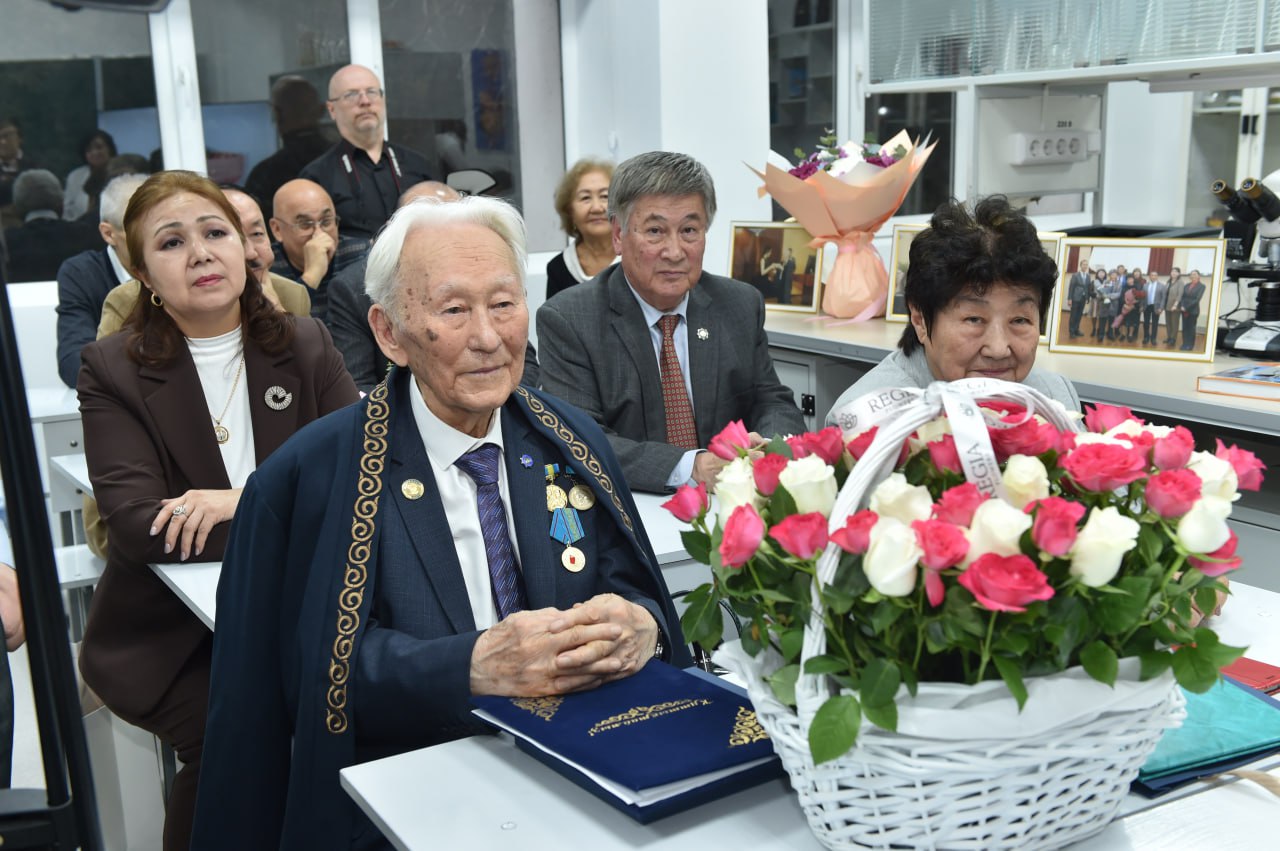
An open curator hour on the topic "Causes and Consequences of Flooding in Western Kazakhstan" was held for 2nd and 3rd-year students of the "Natural-Technogenic Hazards" program. The event was organized in accordance with the 15th (Protecting Terrestrial Ecosystems) and 13th (Combating Climate Change) goals of the Sustainable Development Goals.
In accordance with the topic, Almat Nurbakuly, Senior Lecturer of the Department of Meteorology and Hydrology, who contributed to the research in the region, was specially invited to the event. In his presentation, he highlighted the main causes of flooding in Western Kazakhstan, its consequences, and potential solutions, emphasizing that addressing these issues is one of the key actions aimed at protecting ecosystems and combating climate change. He also introduced the summer research conducted in the region and presented various video footage to the students.
To prevent flooding and mitigate its effects, several measures need to be implemented. First and foremost, protecting natural ecosystems, particularly restoring forests and maintaining riverbeds in their natural state, plays a crucial role. This improves the soil's water absorption capacity and reduces the risk of flooding. Additionally, constructing and upgrading hydraulic structures (dams and barriers) increases the ability to control flooding.
In the context of combating climate change, reducing the emission of greenhouse gases into the atmosphere and utilizing renewable energy sources also contributes to addressing the flooding issue. Furthermore, informing the public and organizing preparedness measures for emergencies are also effective ways to deal with the consequences of flooding.
The causes of flooding in Western Kazakhstan are numerous, and resolving them requires a comprehensive approach. By protecting ecosystems, combating climate change, and engaging in proper planning, we can reduce the negative impacts of flooding and achieve sustainable development in the region.
The students gained valuable insights into predicting, preventing, and addressing various natural and technogenic hazards encountered in our country, which are essential for future professionals in the field.
Akerke TALGHATKYZY,
2nd-year student of the
"Natural-Technogenic Hazards" program
Other news


